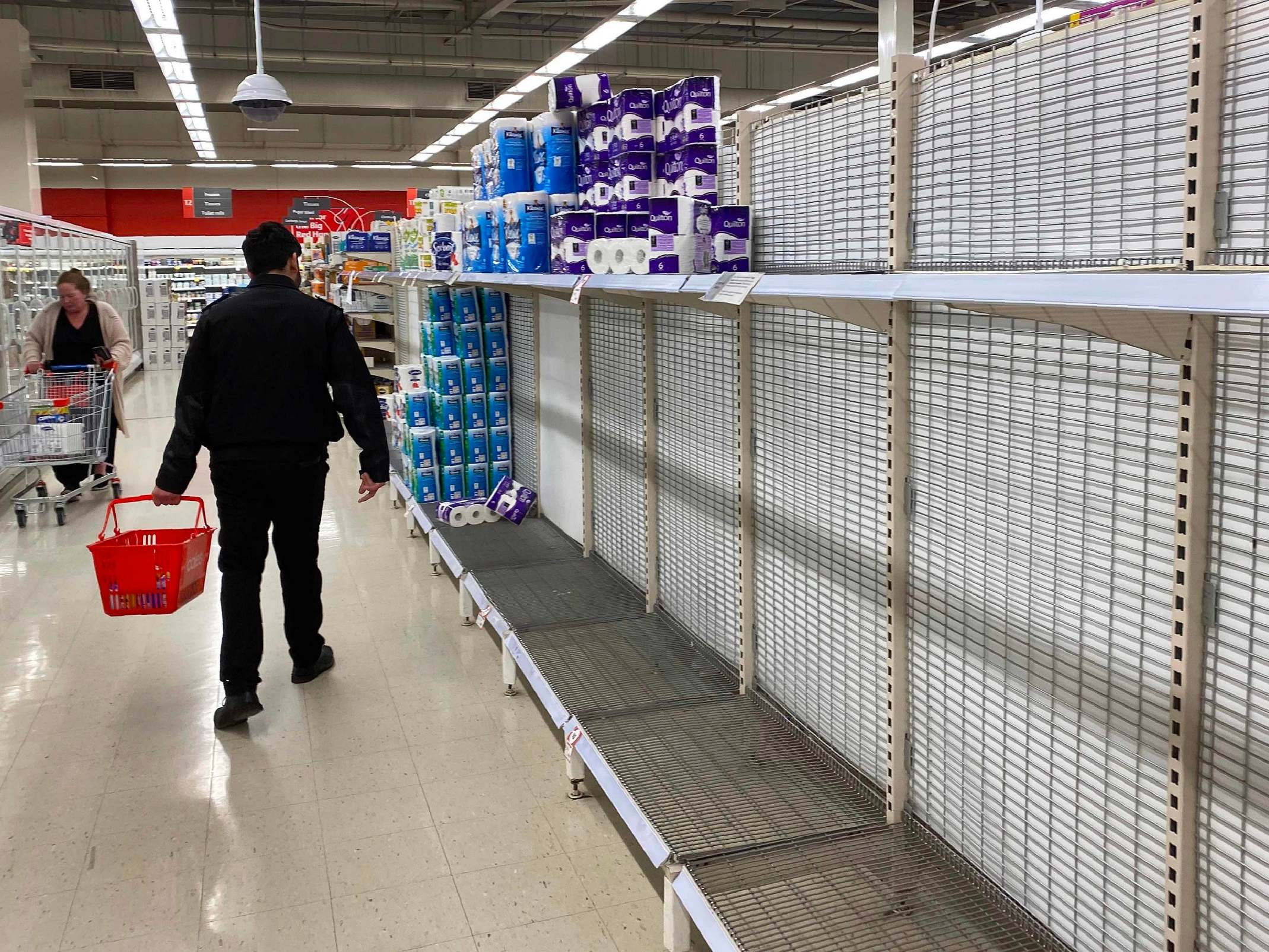Panic-buying returns as millions in Melbourne brace for new lockdown
Supermarkets impose buying limits as shoppers rush to stock up before new six-week stay-at-home order

Your support helps us to tell the story
From reproductive rights to climate change to Big Tech, The Independent is on the ground when the story is developing. Whether it's investigating the financials of Elon Musk's pro-Trump PAC or producing our latest documentary, 'The A Word', which shines a light on the American women fighting for reproductive rights, we know how important it is to parse out the facts from the messaging.
At such a critical moment in US history, we need reporters on the ground. Your donation allows us to keep sending journalists to speak to both sides of the story.
The Independent is trusted by Americans across the entire political spectrum. And unlike many other quality news outlets, we choose not to lock Americans out of our reporting and analysis with paywalls. We believe quality journalism should be available to everyone, paid for by those who can afford it.
Your support makes all the difference.Australian supermarkets have imposed limits on purchases of essential items after a return to lockdown in Melbourne triggered a fresh burst of panic-buying.
Shoppers tweeted pictures of empty shelves and queues in stores ahead of a new stay-at-home order coming into force in the country’s second largest city on Wednesday night.
Victoria state authorities announced on Tuesday that coronavirus restrictions in Melbourne and the surrounding area would be tightened following a record surge in infections.
About five million residents will re-enter lockdown for six weeks, with orders to only leave their homes to buy food, go to work, give or receive care, or exercise.
Supermarket chains Woolworths and Coles have both imposed buying limits on items such as pasta, vegetables, milk and hand sanitiser after shoppers rushed to stores to stock up ahead of the order coming into force.
Local media published photos of long queues at supermarkets and reported that panic-buying began almost immediately after Victoria state premier Daniel Andrews announced the return to lockdown on Tuesday.
Similar scenes were seen around the world earlier this year, when the looming prospect of coronavirus lockdowns prompted shoppers to stock up on essential goods such as toilet roll despite retailers insisting there was was no risk of shortages.
Experts in Australia and other countries have warned the public may have to get used to on-off lockdown restrictions becoming part of life for the foreseeable future.
Restaurants and cafes in Melbourne will only be allowed to open for takeaway from Wednesday night, while entertainment and cultural venues have been ordered to shut.
On Wednesday Victoria authorities confirmed a further 134 coronavirus infections, the state’s second highest daily increase following the 191 new cases reported on Tuesday.
“These are unsustainably high numbers of new cases,” Mr Andrews warned as he announced the return to lockdown, adding it was “clear we are on the cusp of our second wave”.
Prime minister Scott Morrison said the federal government’s medical advisers agreed with the Victorian government that the move was necessary.
“I hope it isn’t for that long. I hope it’s for a shorter period as possible,” he added on Wednesday.
The PM confirmed Australia’s seven other states and territories, many of which have all-but-eradicated Covid-19, would continue to relax pandemic restrictions.
The resurgence of the disease in Melbourne is believed to be linked to breaches of infection controls at Melbourne hotels were international travellers were required to isolate for 14 days after arriving in the country.
On Tuesday the border between New South Wales and Victoria was closed for the first time in more than 100 years in a bid to prevent the outbreak spreading between the states. Police and military personnel have been deployed to enforce the restrictions, which prompted a rush to obtain exemption permits.
Authorities had hastily set up a system to issue travel permits to a select group, but a website created to dispense passes crashed soon after its launch. Lenghty queues formed at checkpoints on the border on the first day of the restrictions.
Join our commenting forum
Join thought-provoking conversations, follow other Independent readers and see their replies
Comments